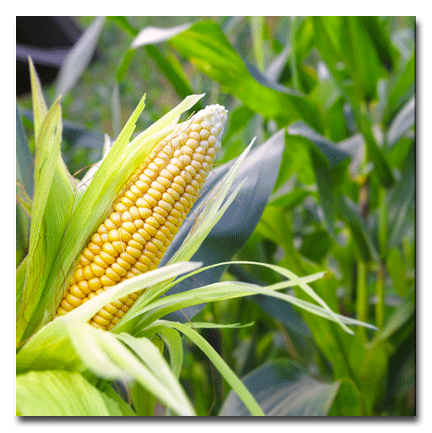Syngenta Viptera Corn Information for Tampa Businesses
Syngenta Viptera Corn is Blamed for $1.14 Billion in Losses Nationwide; Estimates Say Losses for 2014-2015 Season Will Reach $3.4 Billion
Syngenta AG is a global agribusiness that is responsible for developing and marketing Agrisure Viptera and Agrisure Duracade corn seeds. These seeds are a genetically-modified organism, or GMO, which feature a particular trait called MIR 162. MIR 162 is a genetic modification that protects corn plants against common pests. While the genetic modification may promise farmers a better yield on their corn crop, the presence of MIR 162 in Syngenta Viptera corn has resulted in significant detriment for the domestic corn industry. Syngenta is accused of willfully misleading farmers regarding China’s stance of MIR 162, thereby destroying the American corn market. This page contains information about Syngenta Viptera and Syngenta Duracade corn seeds as well as the advertising campaigns that have harmed Tampa farmers and corn distributors.
Syngenta Viptera GMO Corn

Viptera is a genetically-modified (GM) corn seed, designed to protect corn plants from a range of common pests including black cutworms, corn earworms, dingy cutworm, and western bean cutworm. Agrisure Viptera was the first non-crystalline (non-Cry) protein approved for insect control. Known instead as a Vip toxin, Viptera seed features an insecticidal protein that can be traced to the bacterium Bacillus thuringiensis (Bt).
Both Cry and Vip proteins are designed to target specific organisms and are used in tandem to ward off a range of pests. When a pest that is susceptible ingests either a Cry or Vip toxin, the toxin binds internally with the mid-gut receptors. The result is the death of mid-gut cells, which leads to a rupture of the gut and kills the insect. The Vip3a toxin is specific to Viptera seeds and is combined with other Bt traits to control a wide range of corn pests.
Viptera corn seed was released in 2009 following 5-7 years of research by Syngenta. The seeds were approved by the USDA in 2010 and were first sold to American farmers in 2011. Agrisure Duracade, a second generation version of Viptera, was distributed for the first time during 2014.
Syngenta Viptera Corn Advertising
This GM corn variant is appealing to farmers because MIR 162 offers protection from certain pests. However, several Viptera corn lawsuits already underway in federal courts say that the company downplayed China’s stance on the genetic variant and its role as an importer of U.S. corn. When Viptera corn hit U.S. markets in 2011, China had not yet approved the product and had adopted a zero-tolerance policy toward MIR 162 until further notice.
In order to encourage farmers to use the corn in spite of China’s ambivalence, Syngenta launched an advertising campaign dubbed “Plant with Confidence”. A fact sheet available through the company’s website stated that most U.S.-grown corn is used domestically and inferred that China’s approval of MIR 162 was imminent. While some U.S. farmers remained skeptical, many planted Viptera corn seed.
To date, China has not approved MIR 162. Contrary to Syngenta’s claims, the USDA reports that 20% of American corn is exported and China is the leading exporter. In a move that signals China may never approve MIR 162, the country announced a discontinuation of its own governmental program aimed at developing genetically modified corn and rice in August of 2014.
How Syngenta Viptera Corn Has Harmed Agricultural Businesses in Tampa

Experts estimate that Viptera seeds have been planted on 3% of U.S. agricultural acreage. While a small margin of the overall corn crop, the presence of Viptera seeds has resulted in contamination of the U.S. corn supply, from cross-pollination in the fields and comingling in grain elevators. Trace elements of Viptera corn are enough to contaminate an entire export shipment of grain.
USDA reports indicate that the U.S. sold five million tons of corn to China between 2012 and 2013, which makes China a leading exporter of American corn. In 2013, China began rejecting shipments of U.S. corn when they tested positive for MIR 162, the genetic trait in Viptera. The National Grain and Feed Association (NGFA), the trade organization for grain elevators in the U.S., reported in April of 2014 that China had denied corn shipments totaling 1.45 million tons, causing $427 million in lost sales. Shipments have continuously been rejected for even a trace presence of Viptera corn.
Tampa Syngenta corn lawsuits blame the company for a variety of economic losses resulting from Viptera seeds. Estimates show that the presence of MIR 162 in the U.S. export supply has caused the US-to-China corn export market to fall by 85%, decimating a major export market now and into the future. The effects of this damage are even more widespread, as domestic corn prices have fallen an estimated 11¢ per bushel, according to the NGFA. The trade organization estimates that collectively, corn growers, distributors and exporters suffered $1.14 billion in losses between November and August of 2014. The corn industry is expected to suffer even more during the 2014-2015 season, will estimates reaching $3.4 billion in losses. Farmers of other grains, such as soybeans, worry the genetic trait MIR 162 may surface in other crops and lead to further losses.
Midwestern Syngenta Viptera Corn Lawyers Offer Legal Support to Agricultural Businesses in Tampa
Multiple Syngenta Viptera class action lawsuits have been filed by a Washington, D.C. law firm. Major Midwestern law firms with proven track records against billion dollar international conglomerates are now investigating claims against Sygnenta by farmers and related agricultural businesses over Syngenta's Viptera and Duracade corn strains. Whether you planted Viptera seed or not, Syngenta corn lawyers serving Tampa believe that entities within the corn industry in Tampa who have sustained economic losses may be entitled to real compensation through Tampa Syngenta Viptera corn lawsuits. Our lawyers serving Tampa are available for free initial consultations, and can help by answering your questions and giving you a sense of your legal options.
Syngenta Viptera Corn Lawsuits
Corn farmers, grain elevators, distributors and exporters who have sustained economic losses in the past year may have grounds for a Viptera corn lawsuit. We provide legal representation for corn lawsuits on a contingency basis, meaning that we charge no fee unless we win compensation on your behalf.




 OnderLaw, LLC -
OnderLaw, LLC -